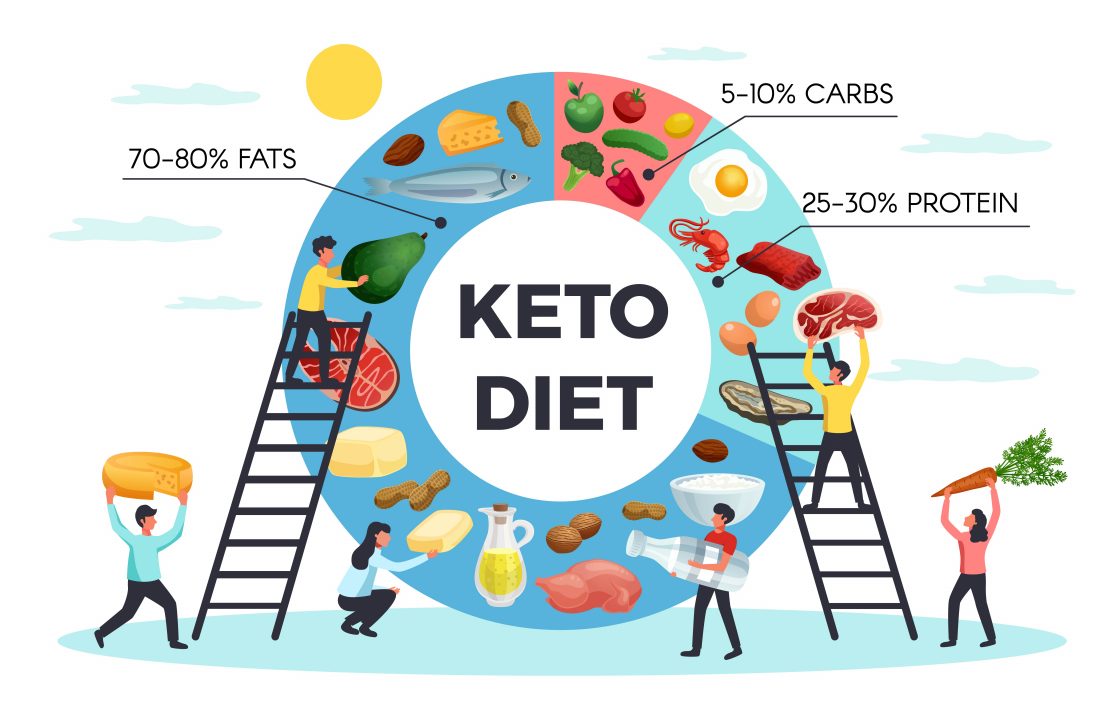Several studies have suggested trusted Sources that the keto diet can affect cholesterol levels. When people consume low amounts of carbohydrates, the liver produces fewer triglycerides, which may raise HDL cholesterol levels.

However, the keto diet may raise LDL cholesterol levels in some people. As a result, the diet may not be appropriate for everyone.
It may not be suitable, for example, for people with fat-induced lipemiaTrusted Source. This condition leads to very high levels of fat in the blood. Suppose a person with fat-induced lipemia follows the keto diet. In that case, their triglyceride levels may continue to rise, which may result in pancreatitis. Generally, people with lipemia must follow a low-fat diet.
People who want to lose weight should speak with a doctor to identify a suitable diet.
When considering recommending the keto diet, doctors must weigh the risks with the potential benefits, including rapid weight loss, reduced triglyceride levels, and increased HDL cholesterol levels.

A review of low-fat diets versus low-carb, high-fat diets greater than 12 months long looked at the effects on cholesterol levels in overweight or obese people.
Researchers found that decreases in total cholesterol and LDL cholesterol levels were significantly more noticeable in those following low-fat diets. In contrast, an increase in HDL cholesterol and a reduction in triglyceride levels were more apparent in high-fat-diet participants.
Whether cholesterol increases or decreases largely depends on how the very-low-carbohydrate ketogenic diet is followed—particularly with the types of fats consumed.

The study authors further found that in high-fat diets, decreased total cholesterol levels were associated with lower saturated fat intake and higher polyunsaturated fat intake. In comparison, increased HDL cholesterol was related to a higher intake of monounsaturated fat.
Lower saturated fat intake was marginally related to lower LDL cholesterol levels. Additionally, increased triglyceride levels were associated with higher intakes of carbohydrates.
The ketogenic diet is very low in carbohydrates and high in fat. How this affects HDL and LDL cholesterol, triglycerides, and heart health is under investigation. Studies on the connection generally have been short-term and have reached a variety of conclusions.
One factor that affects cholesterol outcomes with keto is the type of fats consumed, with unsaturated fats being preferred. Genetics may also play a role in how the ketogenic diet influences cholesterol levels in an individual.
References:
https://www.ncbi.nlm.nih.gov/pmc/articles/PMC7449640/
https://pubmed.ncbi.nlm.nih.gov/19641727/
https://www.ncbi.nlm.nih.gov/pmc/articles/PMC3945587/
https://linkinghub.elsevier.com/retrieve/pii/S2212267213011283



